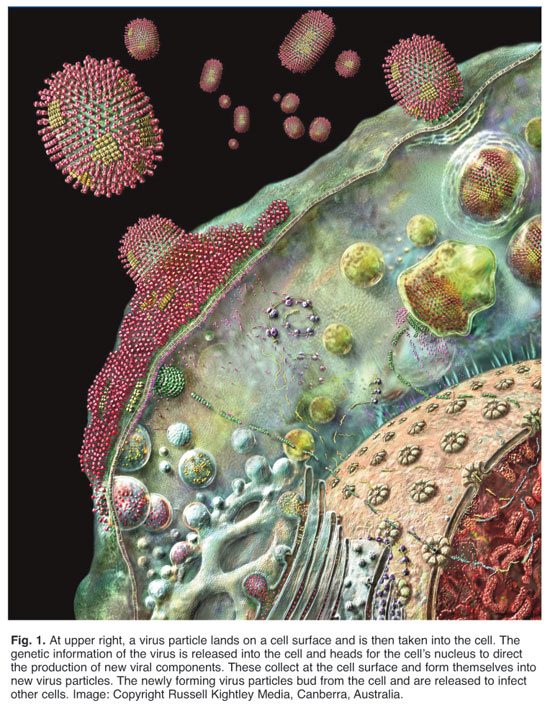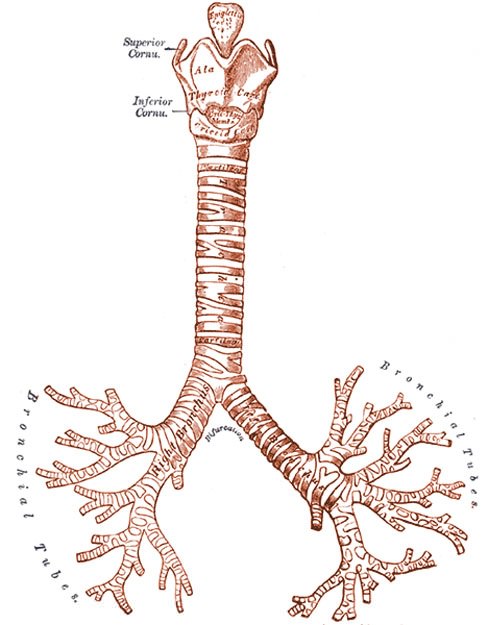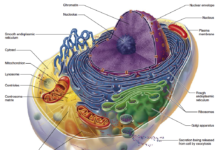By Kate Wright
Coughing is one of the most obvious and indisputable signs of human illness. In addition to being the main cause for patient visits to doctors, over a billion dollars are spent each year on over-the-counter (OTC) cough remedies in the US. With so many people crowding medical clinics and spending so much money seeking relief from this common malady, one wonders why the persistent sounds of sick, coughing people remains such a defining feature of every cold and flu season.
The answer is that most cold and flu treatments are designed to suppress the symptoms of cough, and do nothing to address the cause. As Dr. Jake Fratkin, the developer of an advanced herbal lung support formula notes, even the American College of Chest Physicians (ACCP) has warned that OTC cough expectorants and suppressants don’t treat the underlying causes of the cough, and often don’t do much to help relieve symptoms.
Additionally, the conventional medical practice of giving antibiotics to patients for colds and flu has been shown to be completely ineffective, since antibiotics only work against bacteria, not viruses, and roughly 95 percent of all coughs are caused by viruses. And though antibiotics may slow down the production of mucus, they can weaken the immune system and contribute to the proliferation of deadly antibiotic-resistant forms of bacteria. What is really needed is a safe and effective way of targeting the viruses that cause us to cough.
Targeting Viral Coughs
In 2003 mankind learned a valuable lesson about viral infections. As Dr. Fratkin points out, Western medicine was remarkably ineffective at treating a new viral epidemic that broke out in Hong Kong and China. On the other hand, a traditional Chinese herbal formula offered real hope and success for millions threatened with the outbreak. Reports from traditional Chinese hospitals revealed that far fewer staff health workers were coming down with the infection while treating their patients. Later it was shown that this outcome was linked to an herbal anti-viral formula that the clinic staffers were taking to boost their immune systems and combat the virus.
Significantly, those patients treated with the Chinese herbal formula (an updated version which is now available in the United States) had a better outcome than those treated with the state-of-the-art Western medical therapy that relied on expensive drugs and mechanical ventilators to assist, and in some cases, replace the spontaneous breathing of stricken patients.
In the aftermath of recent viral epidemics, scientists gained new insights into the processes that allow viruses to trigger deadly inflammatory responses while hijacking the body’s cough reflex to infect new hosts. To understand how these developments aided Dr. Fratkin in the design of his updated and improved traditional Chinese cough formula, it helps to briefly review the underlying biological mechanisms responsible for coughing.
Understanding Why You Cough
Contrary to popular belief, coughing is not the body’s primary mechanism for expelling phlegm from the body. Think about what happens when you take a cough expectorant. You stop coughing. And what happens to all of the mucus and phlegm in your chest that was making you so miserable?
As Professor Alyn H. Morice, of Castle Hill Hospital in East Yorkshire, England explains it, “There is little reason to suggest that the coughing associated with an upper respiratory tract infection serves any use for the body. While a small amount of mucus may be expectorated (ejected through the mouth), in no way does coughing contribute to a significant clearing of the airways in normal subjects. If one looks at an extreme example of infective airway inflammation, such as community-acquired pneumonia, despite the sometimes extensive production of mucus and phlegm, the vast majority of material is removed by phagocytosis,” (a process wherein the body absorbs the mucus and phlegm from the respiratory system and sends it via the bloodstream to the liver and the kidneys to be cleaned-up and excreted).
So if coughing isn’t an effective means of clearing our lungs when we’re sick, what exactly causes us to cough so uncontrollably when we come down with a cold or flu? As it turns out, coughing is a highly sophisticated biological trick developed by viruses to help them to spread to new hosts.

To understand how this works, it is important to note that while bacteria can reproduce by cell division, viruses are unable to reproduce on their own. To get around this, viruses have learned how to get their infected hosts to do the work for them. First, a microscopic viral particle has to gain entry into a healthy cell in a host (Fig. 1). Once inside a cell the virus hijacks the internal reproductive machinery and reprograms it with new instructions that force the cell to produce multiple copies of the original virus. Eventually the cell swells and releases millions of new copies of the original virus back into the host. And this is the point where the virus employs another clever trick to spread the newly hatched viral particles to a new host. It forces you to start coughing.
How Viruses Hijack the Human Cough Reflex
Research reveals that viruses take advantage of a basic biochemical mechanism to force their hosts to cough. Coughing is a powerful nervous reflex that is normally controlled by airway receptors that line the human respiratory system. These specialized receptors, called vanilloid receptors, react to pressure or chemical stimuli to trigger a cough. Large numbers of vanilloid receptors are found in the upper portion of the respiratory tract, especially at the top of the tract in the throat and larynx (Fig. 2). As one moves down the respiratory tract and into the bronchial tubes, the number of these receptors steadily declines until, deep in the lungs, there are no more vanilloid receptors.

In the process of infecting a new host, some of the viruses attach to the vanilloid receptors. Doing so stimulates the immune system and causes it to launch a defensive inflammatory response that results in coughing. By activating this immune response and triggering the cough reflex, the virus has effectively turned one of the body’s primary defense systems into a highly efficient tool for spreading infection. Considering that a typical cough can propel millions of viral particles out of the body at close to the speed of sound, coughing is an impressively efficient method of spreading disease.
As Professor Morice points out, “It makes perfect sense for respiratory viruses and bacteria to have evolved the ability to cause cough. Once an organism has successfully invaded the respiratory tract its main problem for continued survival is how to spread to the next host. Some viruses do this by triggering inflammation and producing intense amounts of mucus to manually transmit themselves from person to person with infected secretions. However, the majority of viruses are required to transmit themselves in aerosolized droplets.” In other words, coughing is a simple act of biochemical trickery that allows viruses to take over and control a basic human reflex to spread from a single host to many others.
Right Receptor, Wrong Place
If you’ve ever wondered why you catch a cold or flu while others around remain healthy, the fault may be with your receptors. As it turns out, the location and type of vanilloid receptors each person possesses plays a significant role in the development and outcome of a viral infection.
While some people possess receptors that make them susceptible to certain strains of viruses, others don’t. And even when people have the right receptors for a specific virus, if those receptors are located too far down in the respiratory tract, the viruses may not survive long enough to penetrate deep enough to cause harm.
The importance of receptor location in the outcome of viral infections became clear after scientists examined a number of individuals who died after becoming infected with the bird-transmitted flu. In their research the scientists discovered that each of the victims possessed receptors in their throats and trachea that were susceptible to the specific viral strain involved in the outbreak. Others in the same community who were exposed to the virus in an identical manner remained free of the disease because they lacked the right receptors in their throats and trachea, thereby preventing the virus from gaining a toehold and migrating deeper down into their lungs.
Feeling Better, Yet Still Coughing?
Ever wonder why you are still coughing weeks after you’ve begun to feel better? Consider this: while your immune system can defeat a typical viral infection in about 4 to 5 days, the inflammatory immune response can persist long after the virus is gone. In the process of killing off the primary infection the immune system responds by releasing a massive cascade of cytokines (inflammatory agents) to destroy the invading pathogens. If the immune response overreacts the attack can further damage and irritate lung tissues, leading to a prolonged cough that can last for weeks, or even months, after the infection has been resolved.
Unfortunately, according to Dr. Fratkin, “Western medicine has very little to offer those suffering viral infections of the upper respiratory tract, such as colds and influenza. Classical and Modern Chinese herbal medical literature, on the other hand, documents over 50 herbs that exhibit strong anti-viral effects. It is unfortunate that the general public in the United States is largely unaware of this extraordinary treasure-chest of Chinese herbs and herbal products that effectively address common viruses.”
Development of Advanced Herbal Lung Support Formula
Dr. Fratkin maintains a busy clinical practice in Boulder, Colorado where he specializes in internal disorders, infections and pediatrics. Since becoming a doctor of Oriental Medicine in 1978, Dr. Fratkin has also served as a teacher, department chair, and author, while lecturing extensively on Chinese herbal medicine and nutritional medicine to advanced practitioners around the country.
I asked Dr. Fratkin to discuss the development of his lung support formula. “This formula is the result of my clinical experience, as well as my training in the respiratory department of the Xi Yuan TCM Hospital in Beijing, China. I first created this particular formula 12 years ago, and it is one of the two most popular formulas I use, based on the number of people we give it to.”
Dr. Fratkin explained that, according to Traditional Chinese Medicine (TCM), there are seven distinct stages, or presentations, of cough. The first indications of infection reveal where the virus has entered the body, i.e., sore throat, nasal congestion, and/or cough. For many people the first symptom is usually a sore throat. The more severe the pain, the more likely the infection is going to develop into a cough.
In the next stage, as the virus moves from the initial site of infection and migrates into other areas of the body, additional symptoms begin to show up, such as nasal infection or deep congestion in the chest. According to Dr. Fratkin, it is important to take prompt, aggressive action during the first stage of infection to kill the virus before it has a chance to spread.
“The stage that this formula addresses includes both Lung Fire (strong barking cough without phlegm, seen in croup) and Phlegm Heat (production of yellow phlegm). This type of coughing is common throughout the year, and is aggravating enough to bring people to the clinic, where otherwise they would have “waited it out.” In this stage of cough, there is a lot of heat (inflammation) in the lungs, and phlegm production is small or sticky (rather than profuse and copious). Cough is frequent, the lungs hurt, and there may be coughing at night. This stage can last from 2 to 10 days without herbal treatment.”
Combining herbs traditionally used in different formulas can be particularly helpful in addressing the root causes of cough due to their ability to 1) address the microbial origins of cough by killing the infection, and 2) gently normalize the immune over-reaction to resolve the inflammatory aftermath.
Dr. Fratkin’s advanced lung support formula contains herbs that reduce inflammation (heat) and fight viral infection (Belamcanda She Gan, Andrographis Chuan Xin Lian, Scutellaria Huang Qin, Gardenia Zhi Zi).
The formula also includes a selection of herbs shown to reduce chest congestion by breaking down phlegm and aiding in its removal from the lungs (Trichosanthes Gua Lou Ren, Fritillaria Bei Mu, Platycodon Jie Geng).
Finally, the formula provides herbs that symptomatically halt coughing (Stemona Bai Bu, Armeniaca Xing Ren).
Preventing Coughs by Treating Colds and Flu Early
In describing his approach to treating colds and flu, Dr. Fratkin emphasizes early action. Often, as the initial stages of cold begin to set in many people take a wait-and-see approach, allowing symptoms to advance before considering serious treatment. According to Dr. Fratkin, this is a mistake, and the best thing to do is to take action at the first signs of illness. “In the early stages of infection, before a cough has developed, I would actually use a different formula that contains very powerful botanicals, including such herbs as Lonicera, Forsythia, Verbena, Ilex and Isatis.”
Coughs can be more stubborn, and the sooner they are treated with the proper lung support herbal formula, the sooner they will resolve. While in some cases this can take anywhere from three to twelve days, with quick treatment coughs will gradually lessen in both duration and severity.













